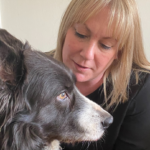
Animal Abuse as a Strategy of Coercive Control / Prevention of Animal Neglect Through Affordable and Accessible Veterinary Care
Information
Recorded
Learning Objectives
Participants will be able to:
-
Explain how and why perpetrators/people that harm and abuse animals coerce, control and entrap human victim-survivors of domestic abuse.
-
Summarize implications of animal abuse in the context of domestic abuse for all victim-survivors - adults, children and animals.
-
Describe 2 reasons why it is important to consider animals in the safety plans of individuals/families escaping domestic abuse.
-
Identify at least 2 practical tools/ resources for including animals in the safety plans of individuals/ families escaping domestic abuse.
-
Define animal abuse and neglect, both intentional and unintentional.
-
Explain 2-3 reasons why pet owners struggle to care for their animals.
-
Define animal care deserts and compare to lack of human resources.
-
Give 2-3 examples of how providing affordable and accessible care can help both animals and their caretakers.
-
Demonstrate ways in which care can be provided to individuals in need.
Educational Goal
Animal Abuse as a Strategy of Coercive Control
The educational goal of this workshop is to highlight the significance of animals in the dynamics of coercive control and how to safeguard all victim-survivors, both people and animals.
Prevention of Animal Neglect Through Affordable and Accessible Veterinary Care
The educational goal of this workshop is for participants to evaluate the causes of unintentional neglect and explore how affordable and accessible care can be used to address this problem.
Description
Animal Abuse as a Strategy of Coercive Control
In this thought provoking session we explore the link between domestic abuse and animal abuse, specifically animal abuse as a strategy of coercive control. Understanding the dynamics and implications of animal abuse in the context of domestic abuse and the professional dialogue around this issue is an essential part of promoting the safety and wellbeing of all victim-survivors of domestic abuse, both people and animals.
Prevention of Animal Neglect Through Affordable and Accessible Veterinary Care
Unintentional animal neglect can be seen as a result of lack of resources to care for animals. By providing assistance to pet owners to care for both their pets and their own needs, we can improve the quality of life of animals, decrease suffering and surrender to shelters due to lack of resources, and help the humans who care for these animals.
Target Audience
- Counselor
- Marriage & Family Therapist
- Social Worker
Presenters

Mary is the founder and chief executive officer of Refuge4Pets, a charity providing a specialist animal fostering service to victim-survivors of domestic and sexual abuse in the South West of England. She has over 15 years practice experience working in the domestic abuse sector.
Mary is also an academic researcher with a specialism in the dynamics and implications of animal abuse in the context of domestic abuse. In 2021 she completed a PhD in the Centre for Gender and Violence Research at the University of Bristol titled Animal Abuse as a Strategy of Coercive Control which was the first in-depth study to explore this issue in the UK.
Mary is a Strategic Delivery Lead at The Links Group, a national Uk-based charity who work to raise awareness about the link between the abuse of people and animals. The Links Group is a member of the US-based National Links Coalition and One Welfare Phoenix.
Michelle Gonzalez was born and raised in Puerto Rico and obtained a B.S. in Zoology from Michigan State University (1995), a DVM from The Ohio State University College of Veterinary Medicine (1999), and a Certificate of Internship in Small Animal Medicine, Surgery and Critical Care from the University of Missouri (2000). She later completed an M.S. in Veterinary Forensics (2017) and in Forensic Science (2022) from the University of Florida and an M.S. in Forensic Psychology from Southern New Hampshire University (2020). She is currently pursuing a Master of Studies in Law at Lewis & Clark University with a focus on Animal Law.
Financially Sponsored By
- International Association of Veterinary Social Work